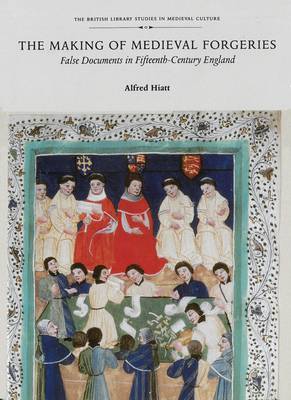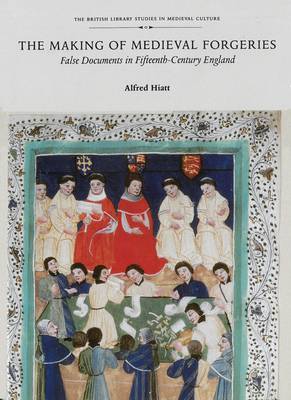
- Retrait gratuit dans votre magasin Club
- 7.000.000 titres dans notre catalogue
- Payer en toute sécurité
- Toujours un magasin près de chez vous
- Retrait gratuit dans votre magasin Club
- 7.000.000 titres dans notre catalogue
- Payer en toute sécurité
- Toujours un magasin près de chez vous
Description
In The Making of Medieval Forgeries, Alfred Hiatt focuses on forgery in fifteenth-century England and provides a survey of the practice from the Norman Conquest through to the early sixteenth century, considering the function and context in which the forgeries took place. Hiatt discusses the impact of the advent of humanism on the acceptance of forgeries and stresses the importance of documents to medieval culture, offering a discussion of the relation of the various versions of the chronicle of John Hardyng to the documents he forged, as well as documents pertaining to the charters of Crowland Abbey and various bulls and charters connected with the University of Cambridge. A considerable portion of the book concerns the Donation of Constantine, which involves many continental writers, German, French, and Italian. The Making of Medieval Forgeries further discusses the 'multiplicity of audiences' for forgeries: those that produce, those that approve, and those that are hostile.
Spécifications
Parties prenantes
- Auteur(s) :
- Editeur:
Contenu
- Nombre de pages :
- 272
- Langue:
- Anglais
- Collection :
Caractéristiques
- EAN:
- 9780802089519
- Date de parution :
- 27-03-04
- Format:
- Livre relié
- Format numérique:
- Genaaid
- Dimensions :
- 176 mm x 252 mm
- Poids :
- 839 g







